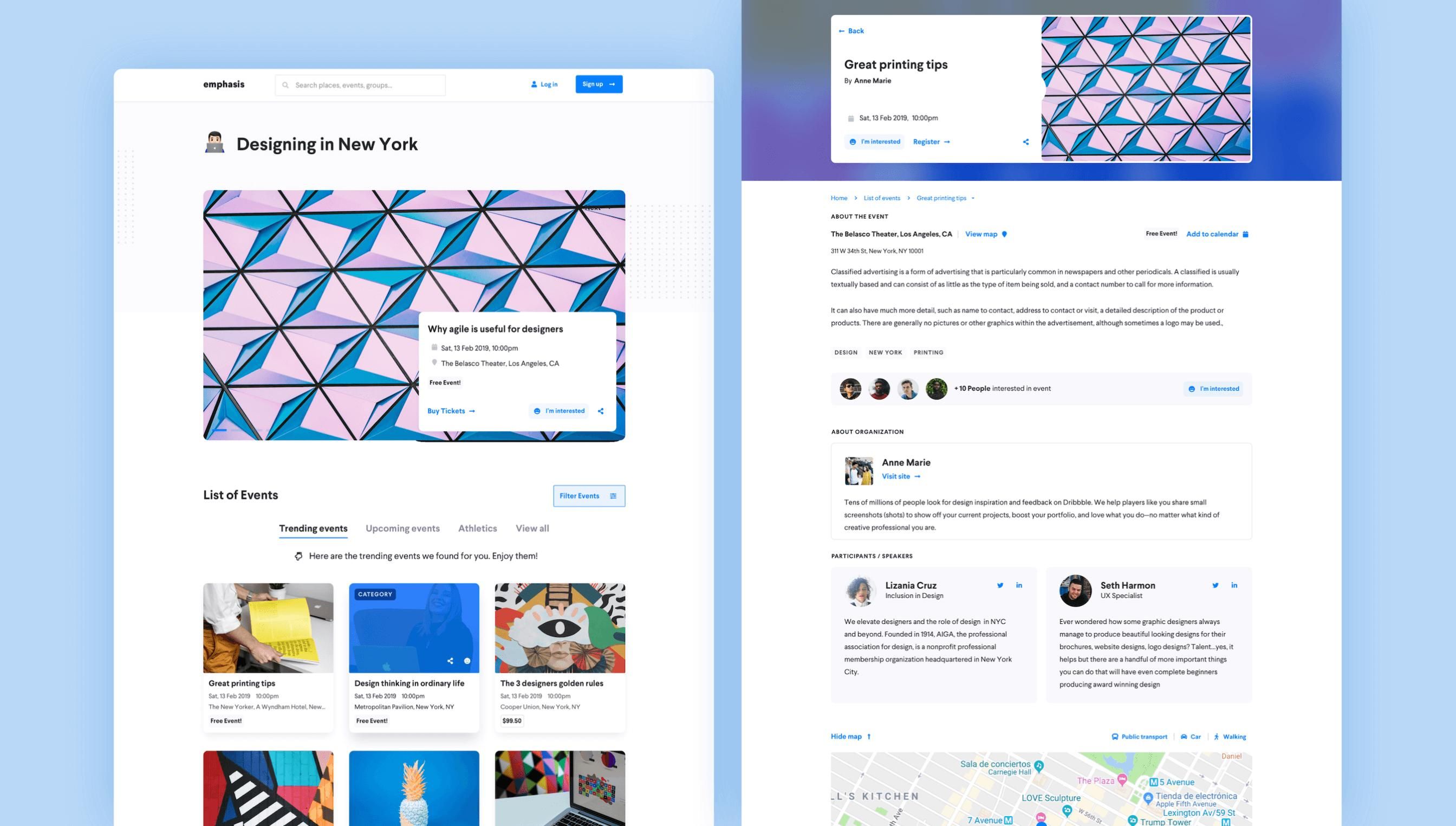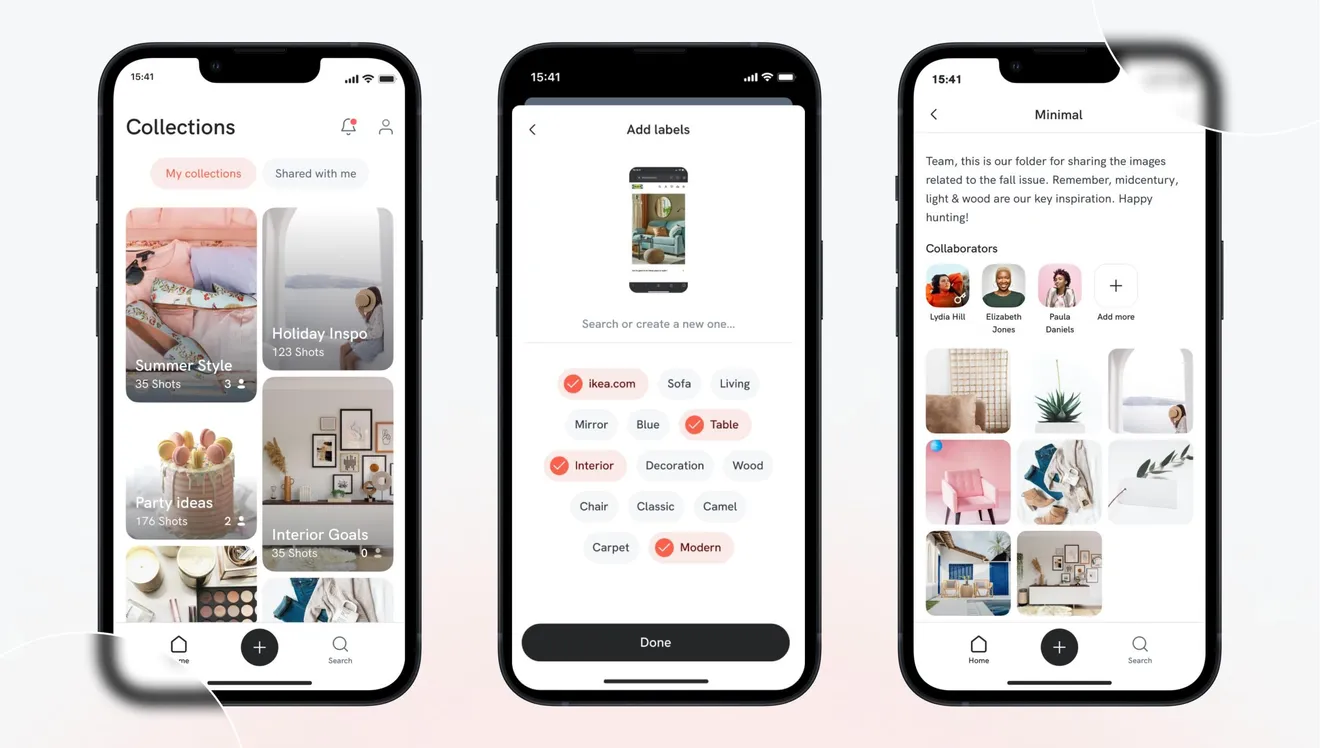The Localist team came to Z1 looking for a fresher look and an improved user experience to help them achieve new business goals.
Localist provides event organizers with beautiful, white-labeled community event platforms and centralizes content workflows for all kinds of events: live, virtual, free, paid, and needing registration or not.
The company got its start focused on colleges and universities, which have thousands of events happening across campuses every month, but more recently, its customer base shifted to marketing and HR teams at organizations.
Gathering together is pure magic
Myke Nahorniak co-founded Localist in 2009 after he stumbled across a restaurant opening in Baltimore with a friend. Myke recalls how they struck up a conversation with people milling around in front of the venue, and they ended up being invited into the restaurant as guests.
That night, Myke met the Mayor of Baltimore and dozens of other people who had real influence in his community. That moment raised some questions:
What if I could know about events like this ahead of time? What if a tool could facilitate the connection between people who want to make a difference with people who already are?
The answers led him to one idea: a desire to create something that would make it easier to connect to his community. That’s how Localist was first conceived.

The vision: there’s no better approach to sustainably grow a business than to create, empower, and connect communities around a brand’s mission. Localist asserts that when it’s done successfully, everyone within the community benefits, everyone wins (including the brand, of course).
Emphasis on event content
Localist is not a Meetup nor Eventbrite competitor. It provides tools that help organizations leverage the power of their events on their own website.
Localist’s community event platform design was a hit back in the early days. However, years later, it had become a weak point of their product. We detected the layout was poorly used, it had too many unnecessary columns, and the typography wasn’t ranked adequately for today’s standards.

Localist’s new design is called Emphasis. Creating it was a huge challenge. They needed a trendier and more functional look, but we had to be super careful with their legacy code not to break any existing features.
The design had to be flexible enough to adopt the hundreds of configurations that reflect all the client’s needs while maintaining all the functionalities their backend provided.
Localist’s focus is on event content. The design of every page on the platform started with asking: How does this page need to work to truly emphasize the unique aspects of each brand’s event content?
A flexible, personalized, and functional new design
Working with Localist, admins can configure the white-labeled theme from the ground up. Every Localist customer has its brand, layouts, and types of event content. Hundreds of customizations are possible, and we had to make it look good in all these lateral cases.

By the end of the project, we designed a vast amount of screen views. To implement them, we used sass and JS vanilla. We also played with some Ruby on Rails templates to reorganize HTML and introduce new CSS classes.
But here is the thing: they had a 12-year-old legacy code, so imagine how many features they introduced during all those years! We were cautious while adding our code and took into account many details not to break anything. We even hacked some things to make them work better, and we rediscovered features that the previous design didn’t allow us to use, like adding the possibility of introducing lots of dates for recurring events. Surprise!
Feeling part of something bigger than ourselves
Communities can not only grow organizations but change lives, and hence change the world. Localist has reached 150M page views a month across its community event network and helped more than 300 organizations build stronger communities around their brands.

Myke likes to say we live in a world where we’re introduced daily to technologies that promise a new way for people to connect, but only a few of them promote the kind of face-to-face interaction that leads to genuine connection.
“When we gather together at events, we remember that each of us has a role to play in the history of humanity. It’s where we find purpose and a place to belong.” Even having worked remotely, without having the chance of gathering together, we are proud to affirm we belong to Localist’s story.


